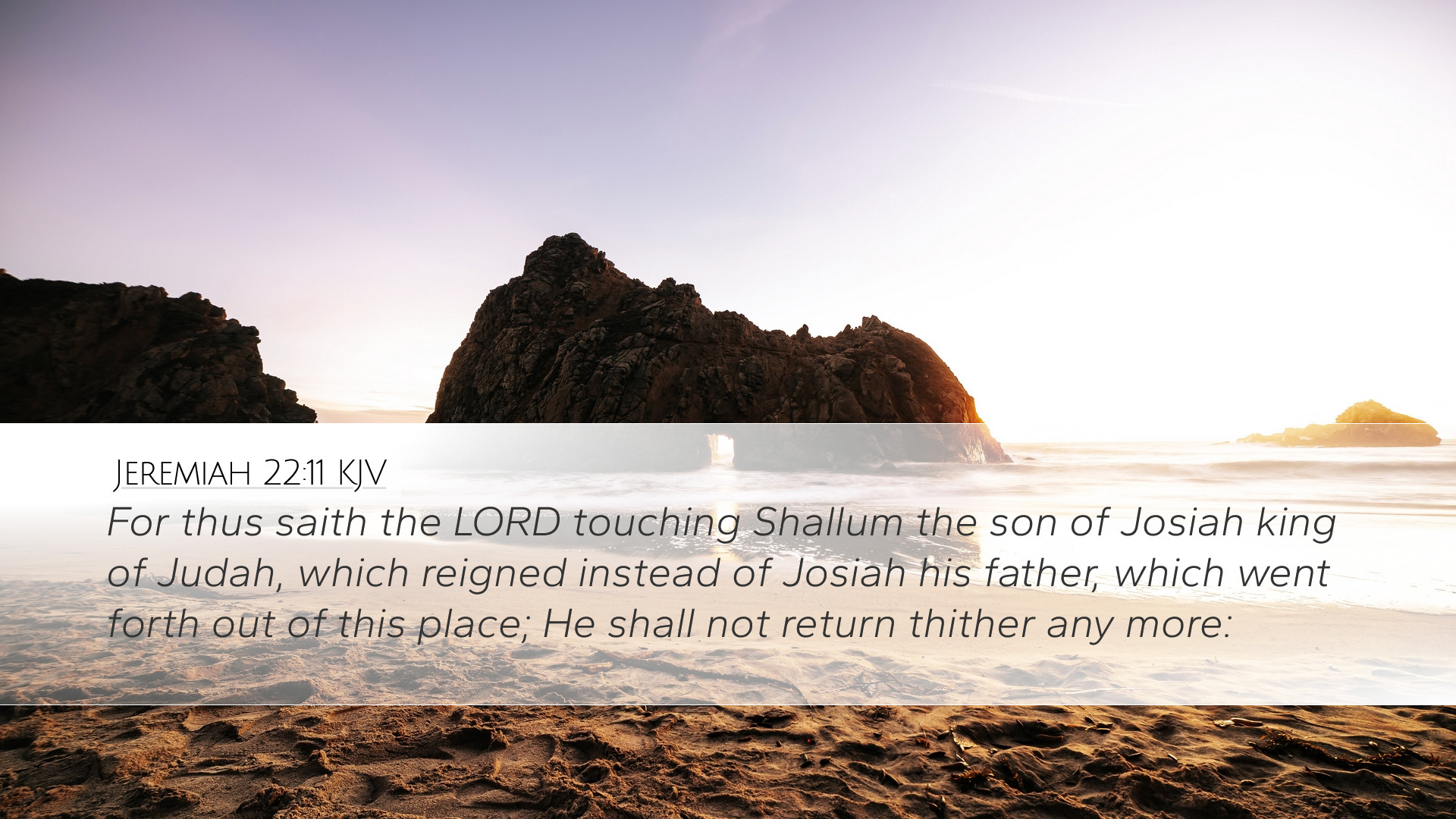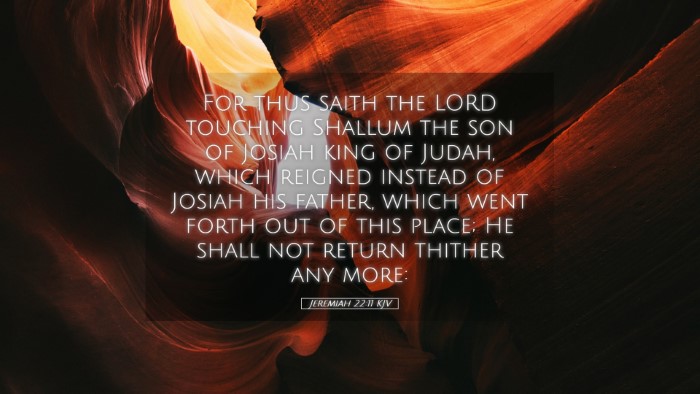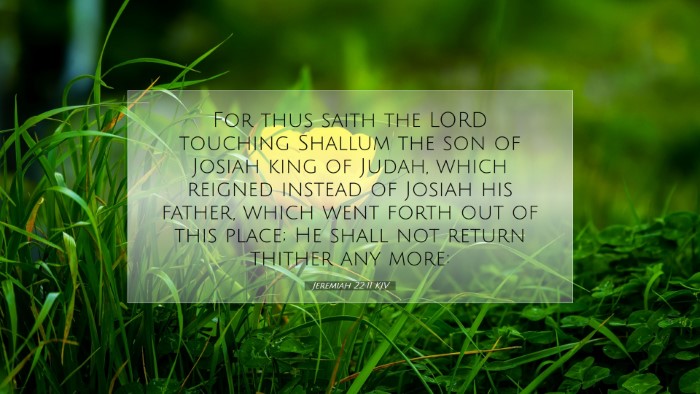Commentary on Jeremiah 22:11
Jeremiah 22:11 states: "For thus saith the LORD touching Shallum the son of Josiah king of Judah, which reigned instead of Josiah his father, which went forth out of this place; He shall not return thither any more:"
This verse features a proclamation concerning Shallum, also known as Jehoahaz, the son of King Josiah of Judah. His brief reign is pivotal in understanding the context of Israel's monarchical history during a turbulent era.
General Insights
The prophetic statements directed at Shallum highlight the severe judgment of God upon the kings of Judah. His name, which signifies "the one who has been seen," contrasts sharply with his fate of being removed from the throne and his homeland.
Theological Implications
Divine Sovereignty: The verse underlines God's absolute authority in determining the fates of nations and leaders. It serves as a reminder to rulers and subjects alike that divine purpose transcends human ambitions.
Judgment and Accountability: Shallum’s reign represents the consequences of infidelity and poor leadership. This not only serves as a historical account but as a warning to contemporary leaders about their accountability before God.
Commentary Analysis
Matthew Henry's Commentary
Matthew Henry observes that Shallum, having been made king after the righteous reign of his father Josiah, exemplifies a failure to uphold the standards of godliness. Henry notes that Shallum's quick departure from the throne, amounting to a mere three months, was indicative of the overarching decline in moral and spiritual integrity among Judah's leaders.
Henry emphasizes that this judgment is not merely a political shift but a profound statement on the spiritual state of the nation. God’s declaration through Jeremiah signifies not just the loss of a monarchy but the abandonment of a covenant relationship with the Divine.
Albert Barnes' Commentary
Albert Barnes expands on the historical context, highlighting that Shallum’s ascent to the throne only followed the tragic events of Josiah's death. He notes that Shallum's reign was marked by the rapid deterioration of authentic governance, reflecting a departure from his father’s righteous example.
Barnes interprets the phrase "He shall not return thither any more" as an irreversible divine judgment. His exile serves as a metaphor for spiritual estrangement from God and illustrates the consequences faced when rebellion leads to rejection. The prophetic pronouncement serves to remind the faithful that estrangement from God results in desolation.
Adam Clarke's Commentary
Adam Clarke underscores the brief and inglorious nature of Shallum's kingship. He elaborates on how Shallum's unworthy actions resulted in his being carried off to Egypt, illustrating the ultimate futility of human pride and ambition against divine will.
Clarke provides an insightful dialogue about the nature of judgment. He pinpoints that while God’s judgement may appear harsh, it is rooted in His holiness and desire for His people to adhere to righteous principles. The absence of Shallum from Judah symbolizes the depth of Israel’s moral decay and serves as a caution against political and spiritual apathy.
Application for Today's Believers
The fate of Shallum is a reflective moment for believers today, inviting introspection about the nature of one's leadership, faithfulness, and accountability before God.
- Leadership: Those in positions of authority are called to govern with integrity and in compliance with God's word, lest they face dire consequences.
- Faithfulness: The example of Shallum reminds believers of the importance of maintaining faithfulness to God amidst societal pressures to conform to secular norms.
- Covenant Relationship: The concept of divine judgment is a timeless reminder of the covenant relationship that believers share with God, calling for a continual return to repentance and faithfulness.
Conclusion
Jeremiah 22:11 serves as a profound piece of scripture that encapsulates themes of leadership, divine judgment, and the critical importance of fidelity to God. The commentary insights from public domain sources provide a rich tapestry of thought for pastors, students, and scholars, ensuring that modern readers glean wisdom from the historical accounts of God’s interaction with His people.


